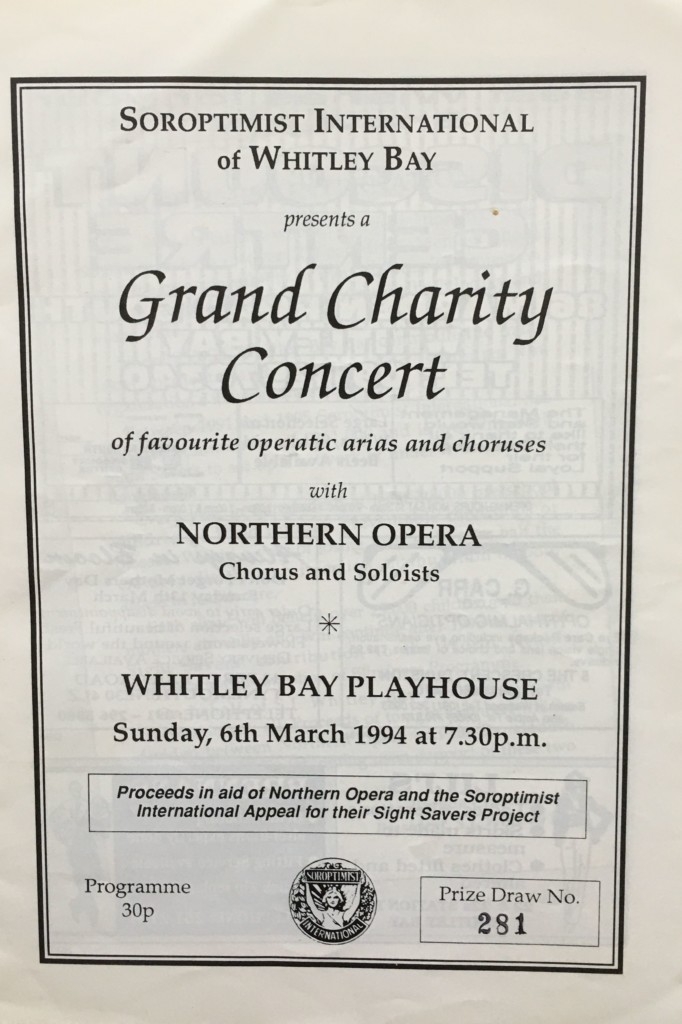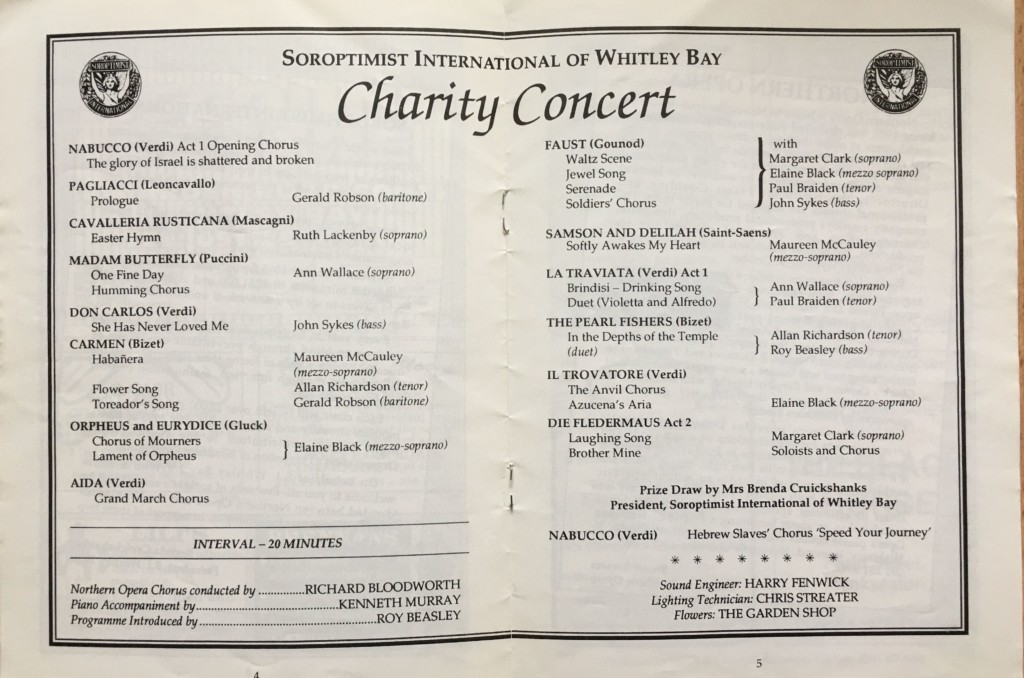A more focused approach to Programme Action
In 1983, Whitley Bay Club was looking at ways to revitalise the service element in club activities and it was suggested at an cxecutive committee meeting on 25 April that a catalogue of club projects and individual members’ service would “be encouraging”. Members were to be asked for other suggestions on how to improve the club and the need for more practical service was one of the ideas shared at a meeting on 23 May 1983.
On 25 October 1983, the executive committee considered a suggestion that the club could be a “clearing house” for opportunities for service which could be advertised on a board at meetings. Another idea was to have the club listed by social services (as were the Lions and Rotary) as being interested in helping where appropriate.
The term Programme Action was being used by the later 1980s and in discussion on 09 May 1988, it was agreed that more time should be given to discussing and planning responses to Programme Action and service opportunities “which are very important in a service organisation”. In club meetings, Programme Action issues tended to be based on Divisional Union reports and they were not necessarily discussed at every meeting.
The new position of Programme Action Officer was noted in a Tynemouth club executive committee meeting on 01 April 1993. The executive committee wanted to raise awareness of Programme Action, so it was agreed at a meeting on 24 July 1993 that volunteers would be asked to speak about aspects of Programme Action to small groups of members, and then in a plenary, the club would decide where to prioritise the focus.
By 1994, Tynemouth club had formed a sub-committee of the executive to see how members could be more involved. The sub-committee reported to the executive on 04 July 1994, recommending that the club should focus on three aspects: health, environment and education. The executive unanimously agreed to this and also decided that Programme Action should be a standing item on the agenda for club meetings.
Tynemouth Club Executive decided on 03 June 1996 that members should be asked to become affiliated to one of four aspects of Programme Action, namely environment, education, breast cancer screening and heart disease. The club’s Programme Action Officer reported that she felt there were too many topics being raised for attention at regional level – too many for in depth consideration – so she advised that the club should focus on 2 or 3 issues. She also noted that it would be useful to allocate a full evening to Programme Action rather than it being included in club business meetings. On 01 July 1996, it was agreed that there would be one club meeting which would focus only on Programme Action, with a ten minute slot at other meetings on particular topics.
On 03 September 2001, the Tynemouth club cxecutive discussed what a Programme Action club meeting should include. One member emphasised the need for members to engage in service, not just fundraising and another suggested identifying one local project on which to focus. The committee agreed that Programme Action should stick within SI guidelines, that Tynemouth should work with other clubs in the region and that projects should be well researched before members embarked on any action.
From the 1990s onwards, there is evidence of club Programme Action being linked with regional themes. For example, on 4 July 1994, Tynemouth club members were asked to write to MPs about banning anti- personnel mines. On 07 November 1994, it was noted that a letter from Neville Trotter MP have been received which included a reply from the Minister of Defence Procurement. This activity was part of a regional focus on this issue during the presidency of Pat Jefferson.
Pat’s term as Regional President coincided with the UN International Year of the Child and Whitley Bay club had clear plans for the first Weekend of the Family on 14 and 15 May 1994, as seen in the document below.





